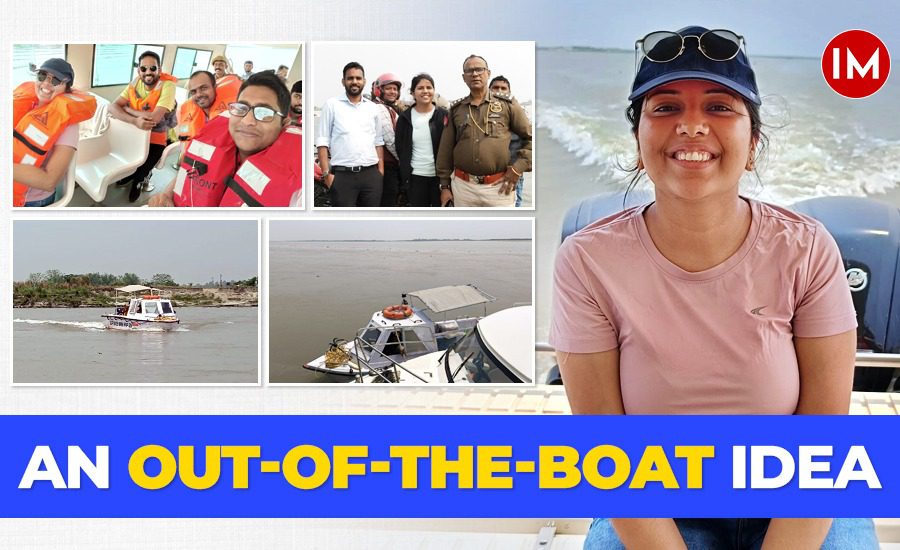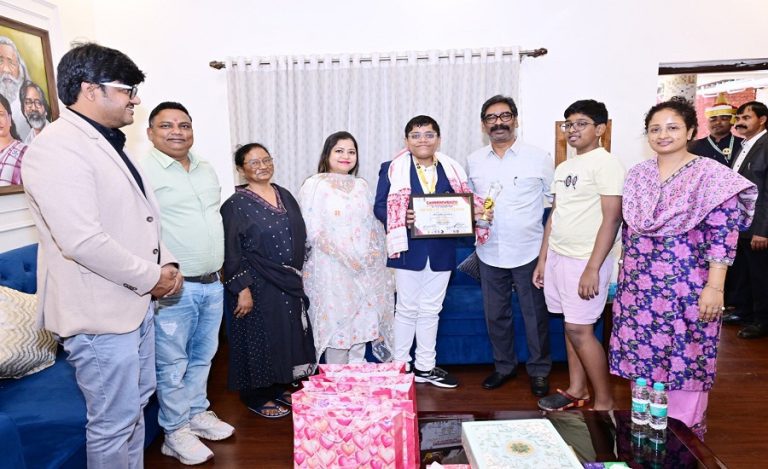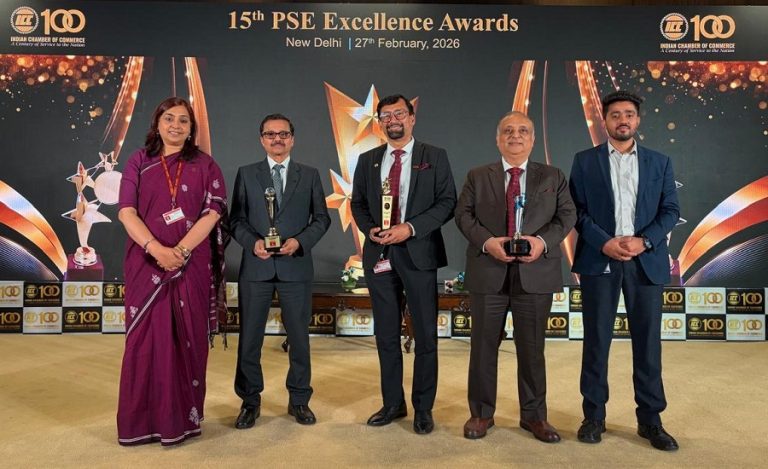Ask any young IAS officer and she or he would tell you how they looked forward with great anticipation and some trepidation to their first posting after probation. This is the time they get to put all the knowledge they had acquired during their training period into action and gather a diverse range of experiences that would further hone their administrative skills.
2021 batch IAS officer Srishti Singh, too, approached her first posting in Assam’s Bilasipara sub-divison in Dhubri district as the District Election Officer with the same energy and enthusiasm. Only two and a half months were left for the parliamentary elections 2024 and she was all charged up to discharge her duties in this biggest exercise of democracy. That her district is not the regular kind, being full of inaccessible char (riverine) areas, added to the barrage of challenges.
To tackle the limited access to these silt-laden areas in the remote basins of the mighty Brahmaputra river, Ms. Singh, improvised on the poll monitoring system and came up with a ‘boat cell’ for the char areas. In an exclusive conversation with Indian Masterminds, the AIR 78 rank holder in CSE 2020 detailed the initiative.

CHALLENGING CHAR
The chars are remote low-lying areas in the silted basins of the Brahmaputra river, inhabited by a large population whose sole occupation is agriculture. The extremely fertile silt makes vegetable cultivation a lucrative occupation and the harvest is sold in the nearest towns and villages after loading them onto country boats that the farmers manoeuvre dangerously through the strong currents of the Brahmaputra.
And, these areas alone account for about 3 lakh of the district’s voters. Bilasipara has two constituencies – Bilasipara and Birsing Jarua. The latter is a riverine constituency comprising of mostly char areas. On top of that, it falls along the international border with Bangladesh, its topography throwing up a unique set of challenges when it comes to conducting voting.
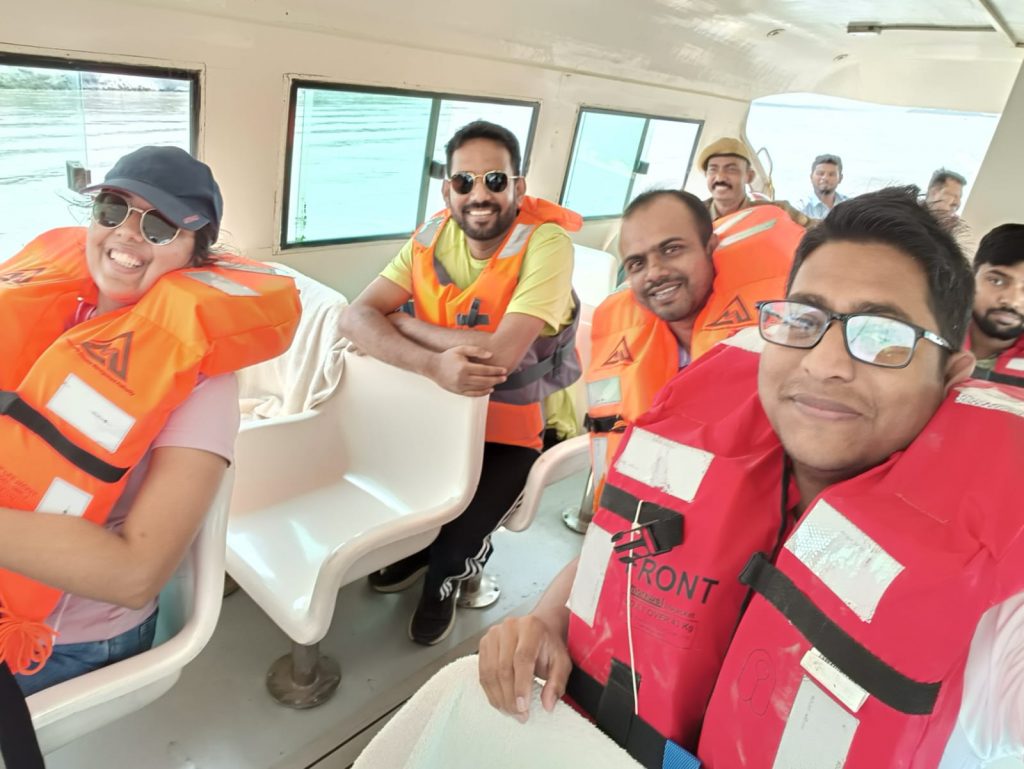
“I had joined two and half months back before the election on 7 May. As I was not too well versed with the area, I decided to go on a tour. Very quickly I realised that this was going to be a very difficult polling deployment. These areas were 6-7 hours away from the district HQ and had poor Internet connectivity and electricity issues. Also, most of the polling stations were along the border. On top of it, there was a storm forecast. So, we had to take into account the poll parties’ safety and security,” Ms. Singh said.
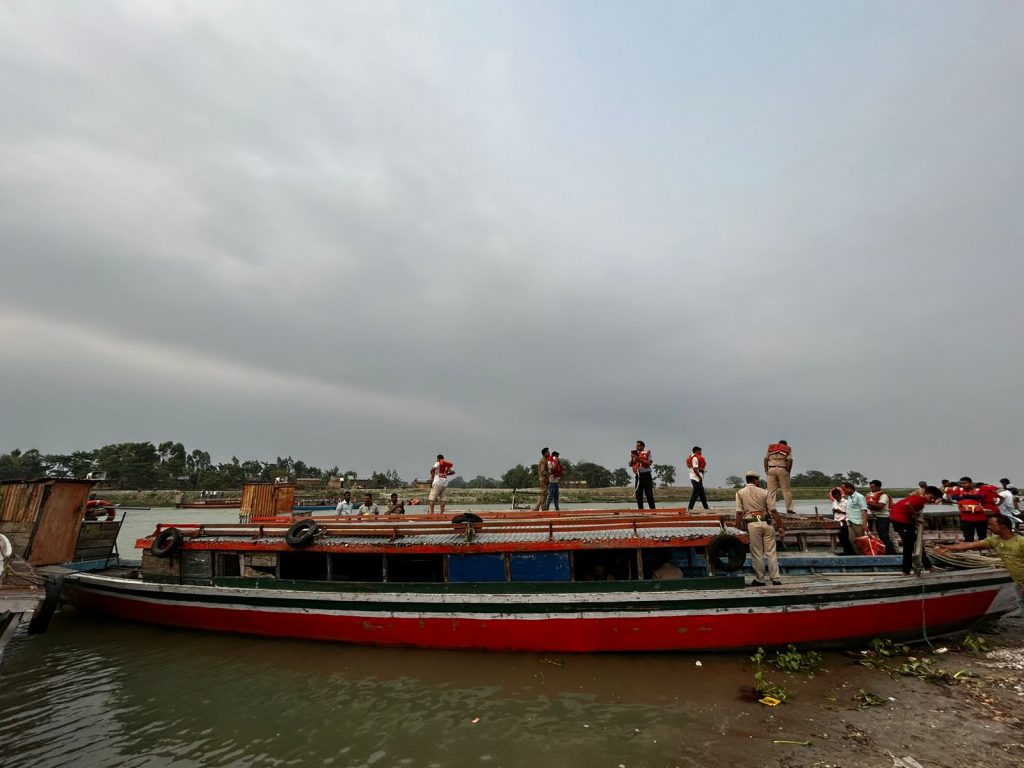
BOAT CELL ACTIVATED
And, as unique challenges require unique approaches, the ‘boat cell’ was activated with a fleet of 90 machine boats and around 7-8 speed boats.
Ms. Singh said, “After doing the recce of the char areas, we realised that the only feasible access was by boats. Hence, we activated the ‘boat cell’.”
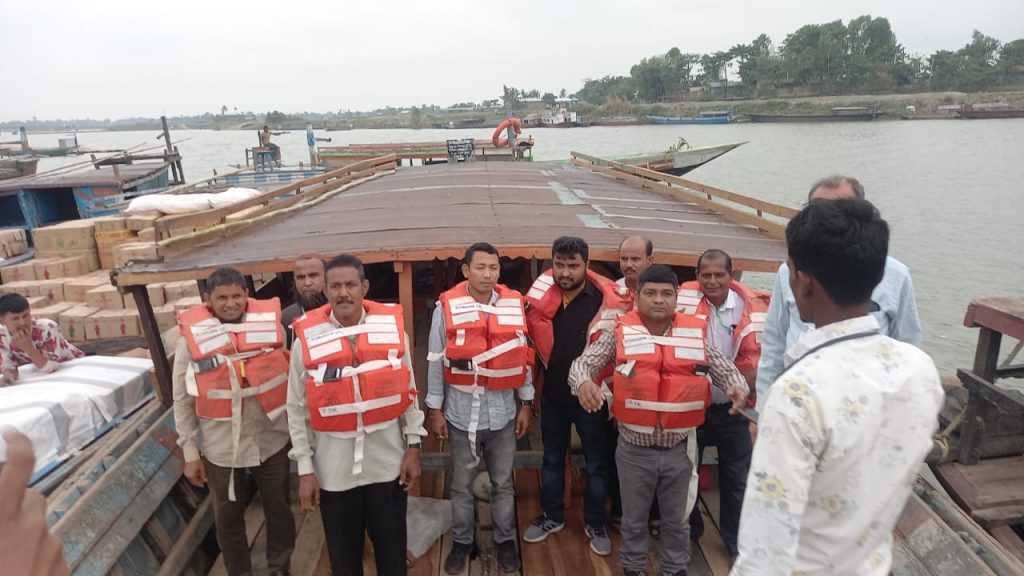
However, once activated, it soon turned out to be a daunting assignment for the cell members. The weather forecast was not good ahead of the polls, with storm and heavy rainfall prediction that could make the already tumultuous river churn out angrier currents, endangering the lives of the polling staff.
“Hence, we requested the BSF to assist us. They gave us their speed boats and their personnel guided us in the waters, especially at night, when the char areas look similar and you cannot distinguish one from the other,” Ms. Singh said.

POROUS BORDER, RUTHLESS STORM
Having the BSF on board also helped them navigate the international waters cautiously. “There is no clear demarcation as the border is porous, and you could easily enter Bangladesh without realising you have crossed over as it’s all a vast expanse of water as far as the eyes go,” said Ms. Singh.
They also roped in the L&T company, which was building a bridge in the area, as part of their storm preparedness, as, all this while, the alerts were increasing in frequency, warning of the danger of an approaching storm and the consequences on the unsuspecting and untrained boat cell members, many of whom did eventually get caught in the lashing rain and strong winds while navigating the deadly currents of a river known for its unforgiving nature.
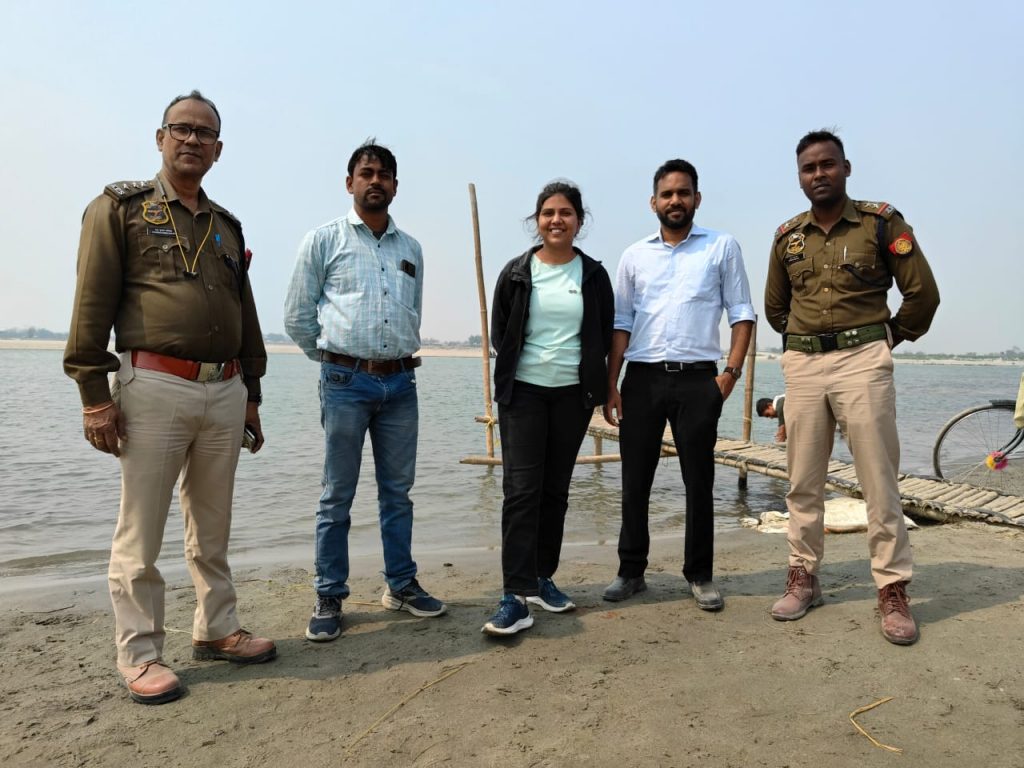
The storm broke on the day the polling parties left on their boats. “Luckily, the government agencies had supplied us with life jackets, torch lights, and all other necessary gear for such an exigency. Plus, having the BSF men on board guiding us in the rough waters helped us to weather the storm,” Ms. Singh said.
MAKING GOOD USE OF IAS TRAINING
On one such visits to the char areas, Ms. Singh’s boat had got lost. “I was visiting the farthest centre, near the international border, when we lost our way. The BSF rescued us. We understood then that we can’t do without them,” she said.

The boat cell operations were streamlined with effective processes in place. There was a control room which received hourly updates. The boats were arranged and checked for fitness by the Inner Water Transport department. Disaster Management Authority was asked to be on standby for any case of accidental drowning while Quick Response Teams were stationed in random chars along with reserved staff and extra boats for exigencies.
“The polling parties left for their stations two days before the polls. They sent our control room hourly updates. That 3-4 day exercise with the boat cell was a huge task and I am thankful that all went well,” Ms. Singh said.
Elections come and go, but they leave behind memories that would last a lifetime. In the case of Ms. Srishti Singh, being exposed to such challenging conditions on her first election posting presented her with a window of opportunity to exercise her administration skills, especially her disaster management learnings, in an area isolated by land as well as by water, where people from the minority community eke out a simple living by cultivating the fertile banks of an unpredictable river that besieges village after village with devastating flood in a yearly ritual.
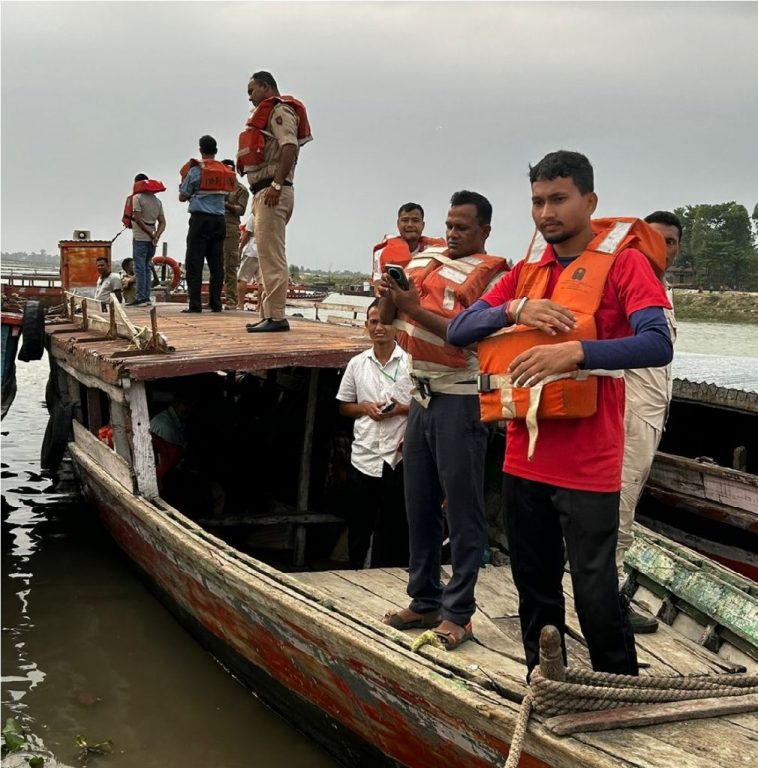
The Brahmaputra shows no mercy to anyone and the char dwellers, too, face its brunt, turning them into a resilient population who tide over this yearly visit of the river by migrating from one char area to another.
Amidst such unfriendly conditions aggravated by isolation, Ms. Srishti Singh set foot in the chars and marked her presence with innovative approaches to ensure the largest democratic exercise was not hampered and the polling took place smoothly, highlighting once again the oft repeated line that “unique problems require unique solutions”.
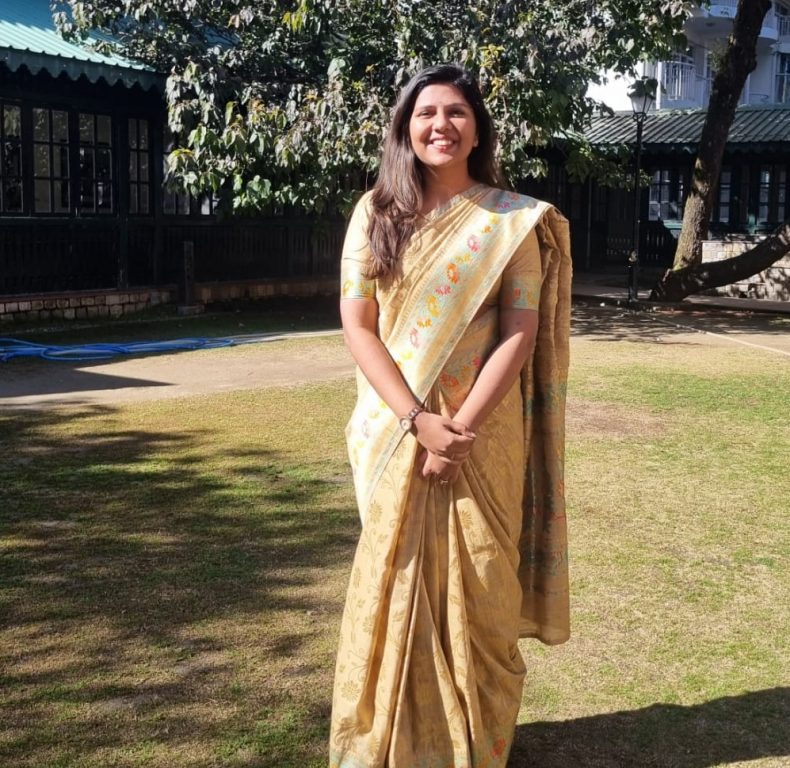
The young IAS officer was put to a gruelling test on her first posting itself and she passed it making full use of her service training, showcasing also her capacity for ‘out of the box’ thinking and her ability for quick improvisation on existing ideas.

